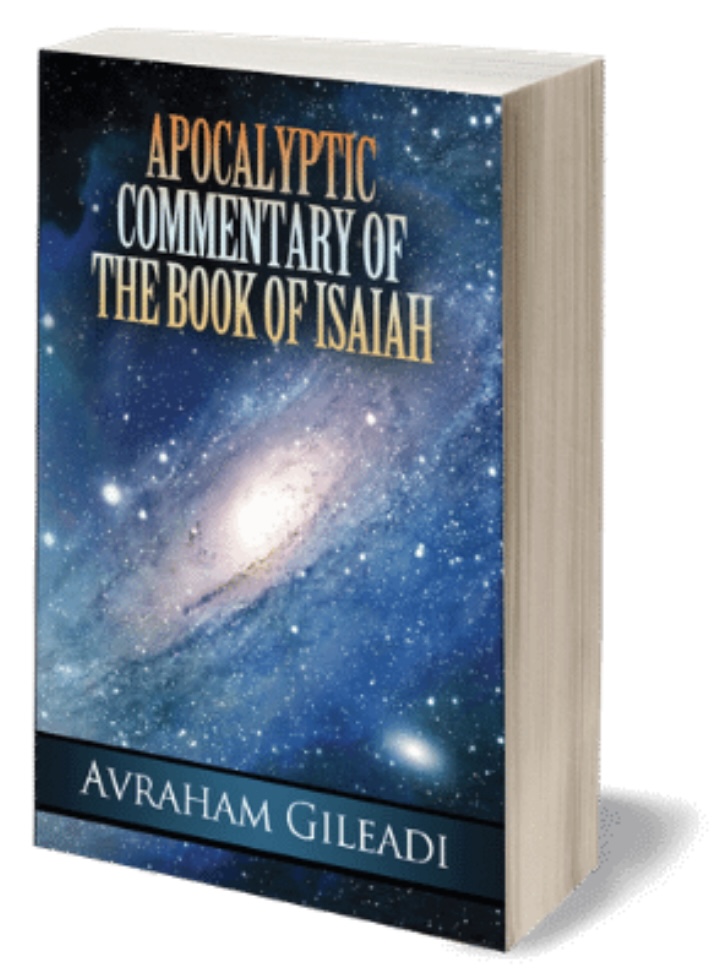Many people believe the teachings of Jesus of Nazareth are an innovation that contrasts the God of mercy in the New Testament with the God of justice in the Old Testament. Such outworn assumptions, however, deserve a closer look as he is the same God of both justice and mercy.
Israel’s God Jehovah and Jesus, Savior of the world, are, in fact, the same God manifesting himself under the terms of covenants he made with his people Israel and their ancestors. By the time Jesus came, those covenants were in place so that their final fulfillment could begin.
The Sinai Covenant—God’s conditional covenant with his people Israel—promised blessings if they kept his commandments but curses if they didn’t. Blessings consisted of a Promised Land, offspring, and God’s protection. Curses consisted of disinheritance and the loss of protection.
God’s temporal salvation of his people thus took the form of physical blessings. Their spiritual salvation, on the other hand, was foreshadowed by the sacrifice of animals that stood in as proxies for persons who had sinned in similitude of the proxy sacrifice Israel’s God would make.
The Abrahamic Covenant—God’s unconditional covenant with Israel’s ancestors Abraham, Isaac, and Jacob—promised a posterity as numerous as the sands of the sea and as the stars in the heavens. The exalted status they attained by proving faithful to God surpassed a “saved” state.
As God is the same yesterday, today, and forever and is no respecter of persons, however, he will do for one what he does for another. In that case, his collective covenant with Israel was intended to get his people on the path to the same exalted state their ancestors had attained individually.
Isaiah 51:1–2Hear me, you followers of righteousness,
seekers of Jehovah:
Look to the rock from which you were cut,
to the quarry out of which you were hewn;
look to Abraham your father,
to Sarah who bore you.
He was but one when I called him,
but I blessed him by making him many.
The Davidic Covenant—God’s covenant with King David—promised God’s protection against a mortal threat when the king kept God’s law and his people kept the king’s law. That made the king their proxy savior. King Hezekiah acted as such a savior at Assyria’s siege of Jerusalem.
In the pattern of ancient Near Eastern vassal kings who answered for the disloyalties of their people to the emperor, Hezekiah paid the price of his people’s temporal salvation. His humbly suffering an illness constituted an acceptable sacrifice that caused God to send his angel.
Isaiah 38:1–6In those days Hezekiah became gravely ill.
And the prophet Isaiah the son of Amoz came to him and said,
Thus says Jehovah: Put your house in order.
You will die; you will not recover.
At this Hezekiah turned his face toward the wall
and prayed to Jehovah:
I beseech you to remember, O Jehovah,
how I have walked before you faithfully
and with full purpose of heart
and have done what is good in your eyes.
And Hezekiah wept disconsolately.Then the word of Jehovah came to Isaiah:
Go and tell Hezekiah,
Thus says Jehovah, the God of your father David:
I have heard your prayer and seen your tears.
I will add fifteen years to your life.
And I will deliver you and this city
out of the hand of the king of Assyria;
I will protect this city.
Isaiah 37:35–36I will protect this city and save it,
for my own sake and for the sake of my servant David.
Then the angel of Jehovah went out and slew
a hundred and eighty-five thousand in the Assyrian camp.
And when men arose in the morning,
there lay all their dead bodies!
Because the ultimate mortal threat is the death of the soul, Israel’s God himself acted as a proxy savior on a higher level. Answering for his people’s disloyalties under the Davidic Covenant and as a proxy sacrifice under the Law of Moses, he obtained his people’s spiritual salvation.
Isaiah 53:4–8He bore our sufferings, endured our griefs,
though we thought him stricken,
smitten of God, and humbled.
But he was pierced for our transgressions,
crushed because of our iniquities;
the price of our peace he incurred,
and with his wounds we are healed.
We all like sheep had gone astray,
each of us headed his own way;
Jehovah brought together upon him
the iniquity of us all.He was harassed, yet submissive,
and opened not his mouth—
like a lamb led to slaughter,
like a sheep, dumb before its shearers,
he opened not his mouth.
By arrest and trial he was taken away.
Who can apprise his generation
that he was cut off from the land of the living
for the crime of my people,
to whom the blow was due?
Isaiah 43:25It is I myself, and for my own sake,
who blots out your offenses,
remembering your sins no more.
The God of Israel’s spiritual salvation, however, doesn’t prohibit his end-time servants from acting as proxy saviors by obtaining his people’s temporal salvation. The Davidic Covenant provides the means for righteous individuals to ascend from a saved state to an exalted state.
That raises the question of how Jesus’ teachings distinguish between a saved and an exalted state. Paul’s comparison of “one glory of the sun, and another glory of the moon, and another glory of the stars” (1 Corinthians 15:41) in the resurrection from the dead provides a clue.
As the “glory” of a resurrected person is determined by the spiritual level he attains in this world, where do we find a theology that teaches how persons may ascend from one level to the next—going “from glory to glory” (2 Corinthians 3:18)—and attain more than a saved state?
Resembling the ladder to heaven Jacob saw (Genesis 28:12–13), Isaiah’s seven ascending and descending spiritual levels of humanity answers this question. People who appear in Isaiah’s prophecy aren’t incidental to the story but fall within seven identifiable spiritual categories.
Within this spiritual hierarchy, Isaiah traces the transition from believers in God called “Jacob” or “Israel” to those who attain a saved state called “Zion” or “Jerusalem.” Beyond them are those whom God calls his “sons” and “daughters,” and, lastly, proxy saviors who are his “servants.”
God saves end-time remnants of his people, for example, “for the sake of” his servants. Also acting as his people’s “watchmen” and as spiritual “kings” and “queens,” these gather God’s “sons” and “daughters” out of bondage and destruction to inherit promised lands as did Moses.
Isaiah 49:22–23I will lift up my hand to the Gentiles,
raise my ensign to the peoples;
and they will bring your sons in their bosoms
and carry your daughters on their shoulders.
Kings shall be your foster fathers,
queens your nursing mothers.
Isaiah 43:5–7Do not fear, for I am with you.
I will bring your offspring from the east
and gather you from the west;
I will say to the north, Give up!
to the south, Withhold not!
Bring my sons from afar
and my daughters from the end of the earth—
all who are called by my name,
whom I have formed, molded and wrought
for my own glory.
Isaiah 65:8Thus says Jehovah:
As when there is juice in a cluster of grapes
and someone says, Don’t destroy it, it is still good,
so I will do for the sake of my servants
by not destroying all.
Isaiah 62:6I have appointed watchmen on your walls, O Jerusalem,
who shall not be silent day or night.
You who call upon Jehovah, let not up
nor give him respite till he reestablishes Jerusalem
and makes it renowned in the earth.
While Isaiah’s Zion/Jerusalem category consists of people who repent of sins and are faithful through trials, the Jacob/Israel category lingers in sin and suffers covenant curses. The one heralds God’s saving power after experiencing his salvation, the other tends to forget God.
Isaiah 30:18–19Jehovah is the God of justice;
blessed are all who wait for him.
O people of Zion, O inhabitants of Jerusalem,
you shall have no cause to weep.
He will graciously respond at the cry of your voice;
he will answer you as soon as he hears it.
Isaiah 40:9Scale the mountain heights,
O Zion, herald of good tidings.
Raise your voice mightily,
O Jerusalem, messenger of good news.
Make yourself heard, be not afraid;
proclaim to the cities of Judah: Behold your God!
Isaiah 43:22But you do not call upon me, O Jacob;
you have grown weary of me, O Israel.
Isaiah 42:24Who is it that hands Jacob over to plunder
and Israel to despoilers, if not Jehovah,
against whom we have sinned?
For they have no desire to walk in his ways
or obey his law.
Inherent in Isaiah’s ladder to heaven, therefore, is a theology of ascent that operates within the terms of God’s covenants. People’s attaining a saved state through the atonement for sin wrought by Israel’s God opens the way for their further ascent to exalted states—to levels of “glory.”
In his person, Israel’s God paid the price of justice on behalf of humanity so that his mercy could extend to all who receive him as their Savior. Mercy and forgiveness of sins are his free gift to those who repent of transgressions while unmitigated justice remains for those who don’t.

